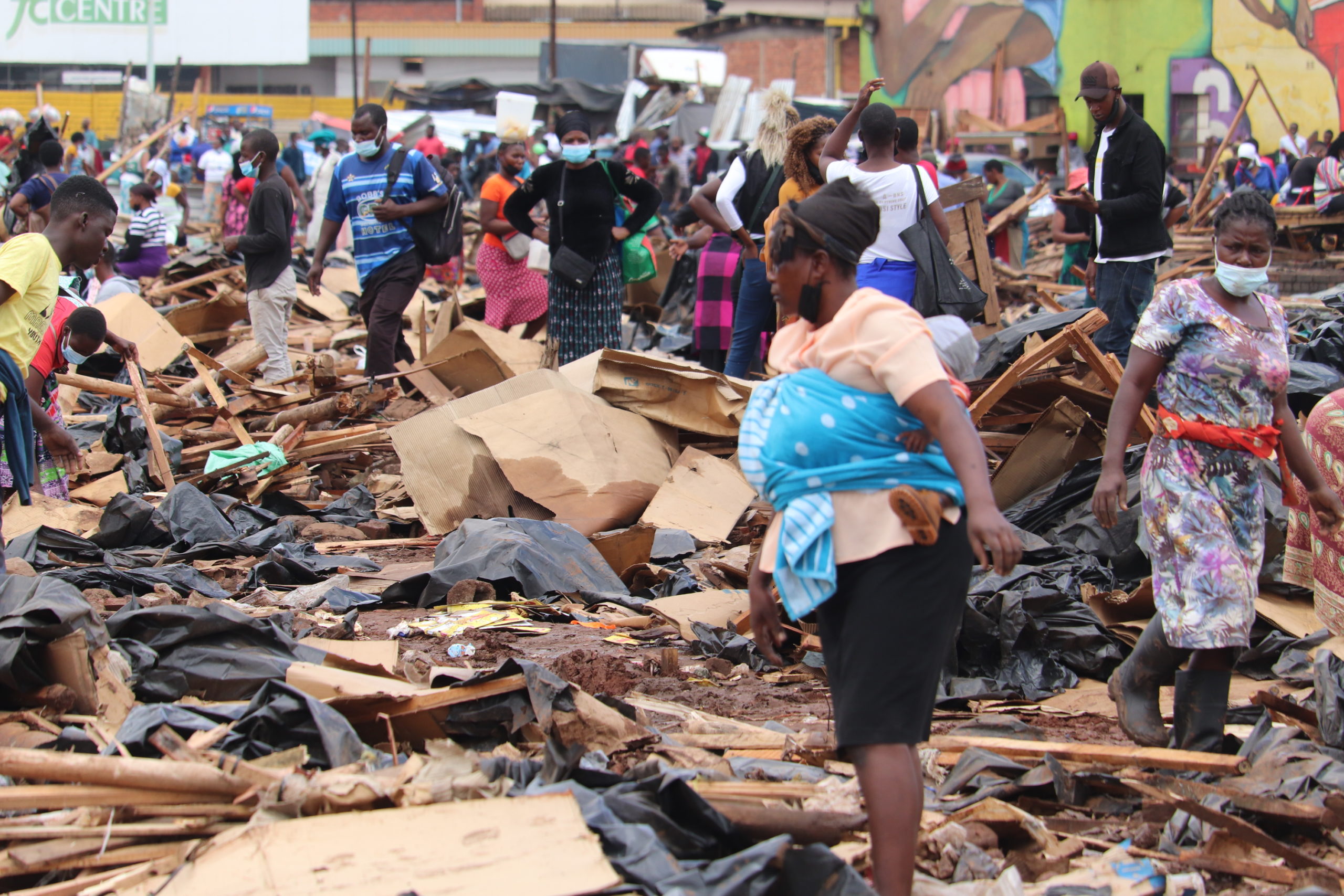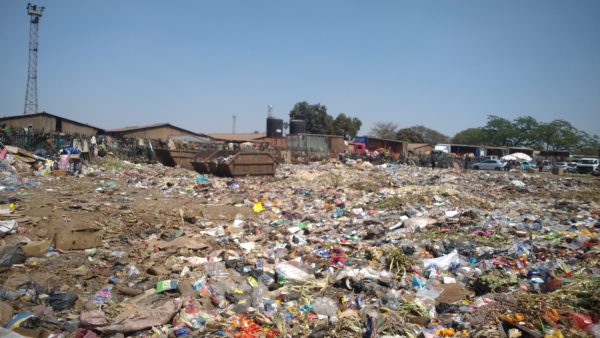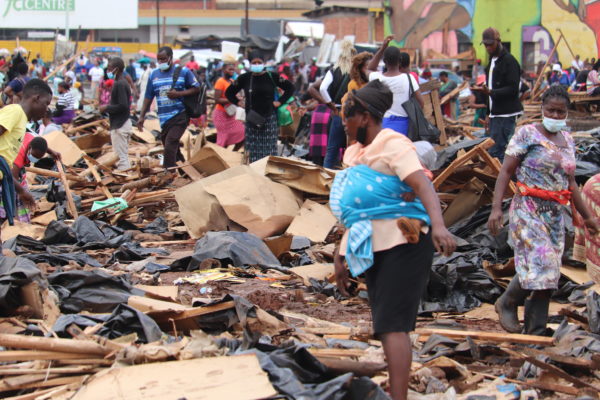NEWS

IN BRIEF
Piles of refuse mar the landscape across the City of […]
SHARE
Piles of refuse mar the landscape across the City of Harare. The City Council faces challenges in collecting refuse citing low capacity to deliver services. The Council has been engaged in conflict with residents who for several years have argue that despite paying rates, inclusive of refuse collection charges, they receive little to no service delivery. The Council is accused of gross mismanagement and poor public administration. Worse, deficient waste management has contributed to the country’s escalating public health crisis. A 2022 CivActs survey conducted through Amandla in Mbare found that 45% of respondents reported that refuse collection occurred only once a month, while 51% stated that it was never collected. More than 20% of respondents reported that uncollected garbage was dumped in drains, and 55% said it was dumped in fields.

Amandla has worked with residents to improve Mbare suburb in Harare through the CivActs model since 2020. The project has gathered information documenting the challenge of poor waste management and secondary impacts, such as the effect it has on the environment and public health. Using this data as an advocacy tool, residents have held community briefings and engagements with local authorities, including the City of Harare and the Environmental Management Agency, to advocate for better management and service delivery and to co-create solutions.
CivActs is a pioneering citizen feedback, dialogue, and community voice platform to ensure accountability in the development process. Through the model, communities’ numerous communities in Nepal, Pakistan, Liberia, and Mali have collected important information to better understand and advocate for solutions to their challenges. CivActs data has helped address issues such as migration, human trafficking, natural resource management, and security issues.
In the CivActs process, the host community selects volunteers led by local journalists. The volunteers, called Community Frontline Associates, gather information through surveys. This information is then shared with local and national authorities, and validated data is fed back to communities through radio shows, meetings, and infographics. This process promotes accountability in local decision-making and fosters collaboration between citizens, governments, media, and the private sector.

In 2022, a series of CivActs organized stakeholder engagements resulted in EMA imposing a fine on the City of Harare for the environmental risks posed by uncollected refuse. While the penalty led to improved distribution of the City’s refuse collection schedule, Mbare residents still did not receive effective service delivery, and the core issue remained unaddressed. Working with Amandla, residents persisted in advocating for their right to an environment that is not harmful to their well-being (Section 73). Their patience and persistence proved fruitful. In February 2023, the Environmental Management Agency took over responsibility for waste removal from the City of Harare, with the Ministry of Local Government and Public Works’ Communication and Advocacy Director, Gabriel Masvora stating, “Government has been forced to take drastic measures in Harare due to the deterioration of services, and plans have been put in place to ensure EMA collects refuse or contract private companies.”
Since then, the number of garbage hotspots in Mbare has drastically reduced. In September 2023, Mbare was removed from Harare’s list of garbage hotspots after the reduction of illegal dump sites reduced from 81 to 20. This is a big win for the community and Amandla, who have advocated for more effective waste management since 2021.
Zimbabwe suffers perennial waterborne disease crises, putting millions of lives at risk. Sustained advocacy and engagement between citizens and duty bearers, using evidence and mechanisms like CivActs, which encourages all stakeholders to co-create practical solutions, will bring significant health and hygiene benefits to communities nationwide. The CivActs process continues to generate solutions inclusive of community concerns focusing on realizing constitutionally guaranteed rights. Moving forward, Amandla plans to revitalize a bio-waste processing plant to manage waste while creating employment opportunities for young people and help the community gain long-term independence.
—
Upenyu Makoni-Muchemwa is the Media and Communications Manager at Accountability Lab Zimbabwe
